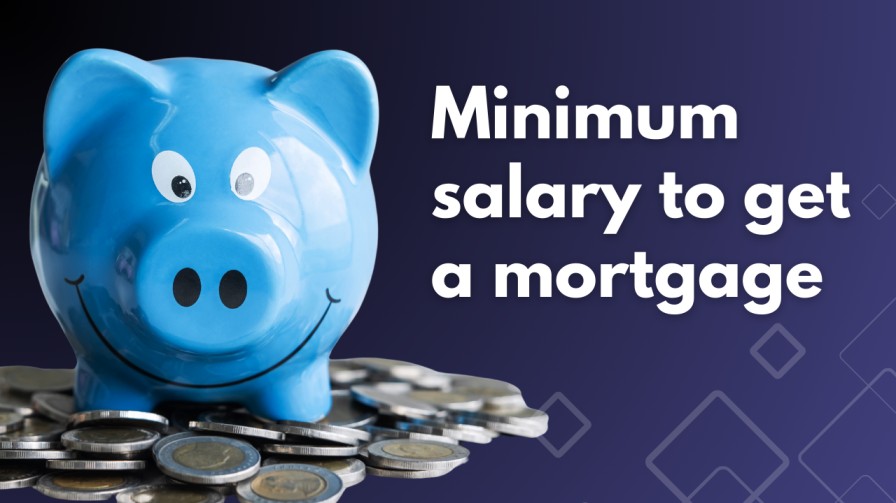Use the quick and simple quotation system to get a mortgage quote in seconds.

28th April 2025
Getting on the property ladder can seem challenging, particularly if you're on a lower income or unsure how much you need to earn to qualify for a mortgage. While there is no formal minimum salary requirement in the UK mortgage market, lenders will want to ensure that you can afford the repayments both now and in the future. This guide outlines how lenders assess income, what factors influence borrowing potential, and what options may be available depending on your financial situation.
Risk Warning:Your home may be repossessed if you do not keep up repayments on your mortgage.
find me a mortgageMortgage providers are required to conduct affordability assessments to ensure you can maintain repayments. This involves reviewing your income to:
Income forms the basis of your application, but lenders also consider factors such as credit history, existing debt obligations, and monthly outgoings.
While there is no FCA-mandated minimum salary, most lenders apply internal affordability criteria. As a rough guide:
FCA guidance requires that firms ensure lending is responsible and not based on unrealistic affordability assumptions.
Lenders often use income multiples to estimate potential borrowing limits:
| Annual Salary | Borrowing Potential (4.5x) | Estimated Property Price (with 10% deposit) |
|---|---|---|
| £20,000 | £90,000 | £100,000 |
| £25,000 | £112,500 | £125,000 |
| £30,000 | £135,000 | £150,000 |
These figures are illustrative and do not constitute a mortgage offer. Affordability and lending criteria vary between lenders.
Lenders will take a holistic view of your financial situation, including:
If your income is lower or you are concerned about qualifying, consider the following:
Some lenders may consider certain types of benefit income when assessing affordability, including:
However, many lenders exclude means-tested benefits such as:
Always check with the lender or a regulated mortgage adviser to clarify what income sources are accepted.
Risk Warning:Your home may be repossessed if you do not keep up repayments on your mortgage.
Applying as a sole applicant can present specific affordability challenges:
| Salary | Max Borrowing (4.5x) | Property with 10% Deposit | Estimated Monthly Payment* |
|---|---|---|---|
| £18,000 | £81,000 | £90,000 | ~£350/month |
| £25,000 | £112,500 | £125,000 | ~£480/month |
| £30,000 | £135,000 | £150,000 | ~£580/month |
Example based on 30-year term at 2.5% interest. Rates vary. This is not financial advice or a mortgage offer.
What's the minimum mortgage amount available?
Most lenders have minimum thresholds ranging from £25,000 to £50,000.
Can I get a mortgage earning £15,000?
Possibly, through specialist lenders. A larger deposit and good credit history would strengthen your application.
Do lenders look at gross or net salary?
Primarily gross (pre-tax) income is used in affordability assessments.
Is pension income acceptable?
Yes, most lenders consider retirement or private pension income, subject to verification.
What deposit do I need?
A minimum of 5% may be acceptable under some schemes. However, a 10% or larger deposit often results in more favourable mortgage rates.
There is no official minimum salary to get a mortgage in the UK. However, you'll typically need to earn at least £15,000 to £20,000 per year to meet most lenders' affordability thresholds. More importantly, lenders want to see evidence of consistent income, manageable outgoings, and a reliable credit profile.
For those with lower earnings, shared ownership, longer terms, and government schemes may provide accessible pathways. Always seek guidance from an FCA-authorised mortgage adviser to explore what's feasible for your circumstances.
Important: A mortgage is secured against your home. Your home may be repossessed if you do not keep up repayments.
Contact UsUse the quick and simple quotation system to get a mortgage quote in seconds.
SHARE WEBPAGE